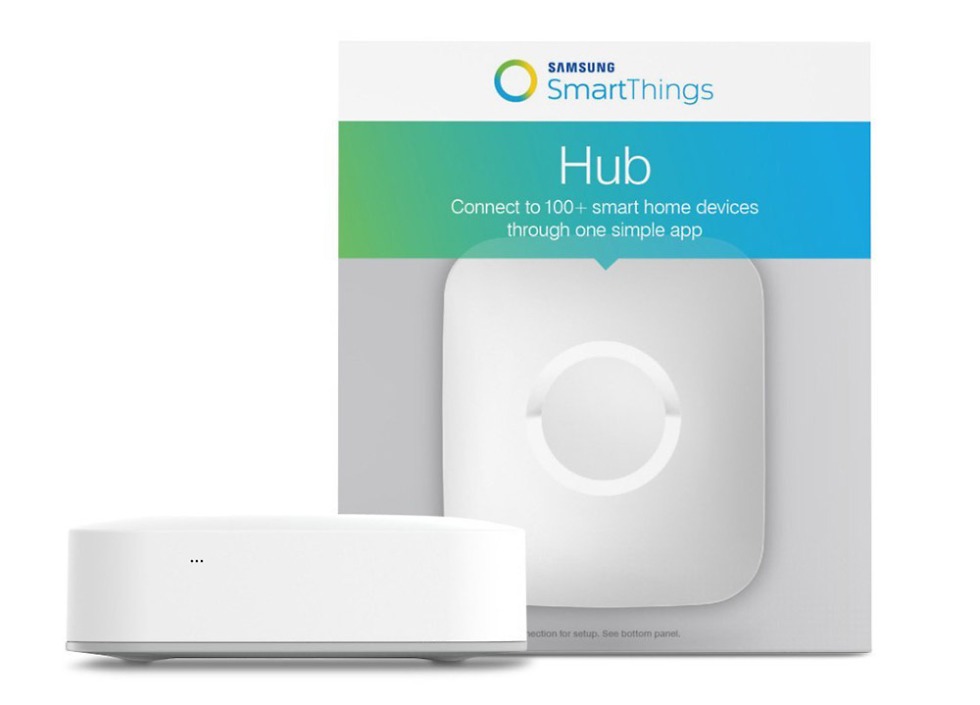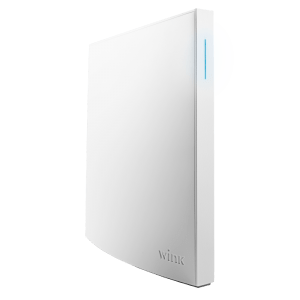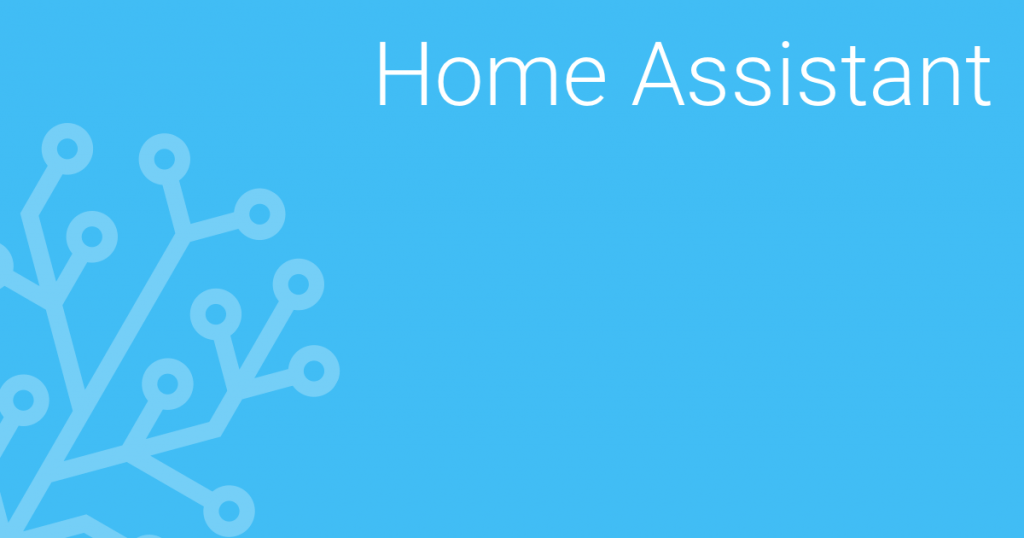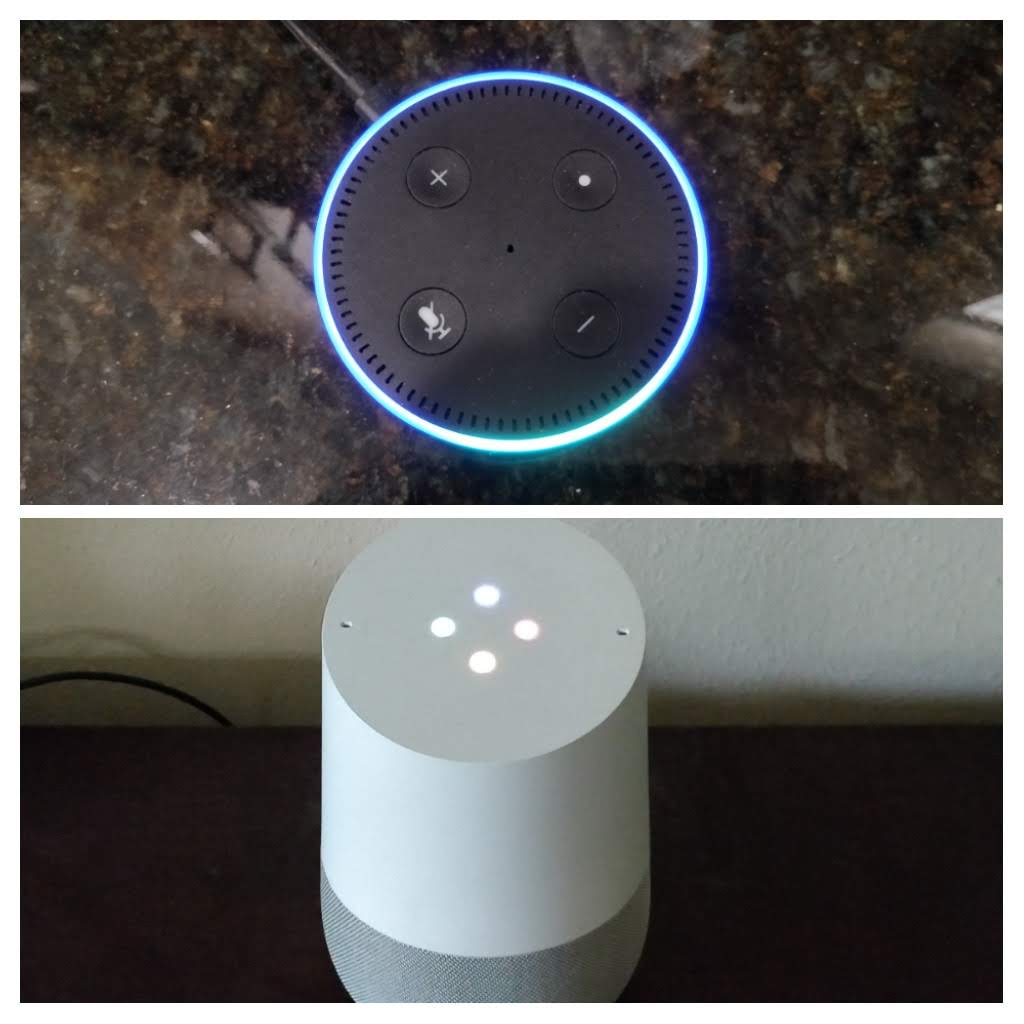
Are you ready to add remote control and automation to your
Editor’s note: I recently published a list of smart home hub recommendations that you might be interested in.
Table of Contents
What is a smarthome hub?

A smarthome hub integrates and facilitates automation of the various smarthome devices in your home. Many homes have a collage of smarthome devices that aren’t aware of each other. For example, it’s common for a smarthome to have a combination of smart lights, smart switches, smart speakers, thermostats, and various other smart devices running on different protocols (e.g. Zigbee, Z-Wave, IP/WiFi, Infrared, RF, Bluetooth). You may have a separate app to control each of these devices. What happens when you want one device to trigger an action from another? Or you don’t want to have to switch through multiple apps just to do basic things? This is where a smarthome hub comes into play.
What different types of hubs are there?
There are many different types of smarthome hubs and almost as many ways to categorize them. For this article, I’m going to put them into 4 categories: hardware hubs, software hubs, smart speaker hubs, and combo hubs.
Hardware hubs

Hardware hubs are the more traditional hubs. They are usually small devices that connect to your home network and they interface with all of your smart devices. Each has its own user interface and ways of customizing and configuring. They come with radios (or have add ons you can purchase) to interface with popular home automation protocols like Zigbee and Z-Wave.
Advantages
- Hardware hubs are easy to install (plug them in and connect)
- They usually have decent to good documentation
- Hardware hub device support out of the box is usually good
- They offer expansion add ons for additional device support or capabilities
Disadvantages
- Often require Internet access to work properly and send your commands to the cloud (Hubitat is an exception)
- Can be complicated to configure
- The backing company controls features and access and can decide to stop supporting it or even stop it from working at any time (see Lowes Iris shutdown)
Hardware hub examples
Software hubs

Unlike hardware hubs, software hubs separate the software needed to run your smarthome from the hardware. Software hubs require you to install the software onto hardware (like a PC or Raspberry Pi), so you need to have some familiarity with installing and configuring programs. In order to interface your software smart hub with Zigbee and Z-wave
Many software smart hubs are free, and allow you to
Advantages
- There are many fully featured free software smart hubs
- You can select your own hardware
- Software systems allow for greater flexibility in customization (user interface and automation)
- Open source systems usually have great community support
- You can add missing or additional features yourself if you have the technical chops
- Software systems are more likely to keep your smart home control local
- Many systems can interface with hardware smart hubs
Disadvantages
- Often there is a steep learning curve
- The software must be installed on an always-on computer
- You will need additional hardware to communicate with some smart devices
- You are responsible for keeping the software upgraded
Examples
- Home Assistant
- Openhab
- Domoticz
- HomeSeer (can also be purchased as a hardware hub)
Smart speaker hubs

Smart speaker hubs are much newer than software and hardware hubs. Many people don’t even think of their Google Home or Amazon Echo as a smarthome hub, but they are. As these systems have grown in integrations over the years, they have begun to take the place of traditional smarthome hubs. Smart speakers can now interface with home security cameras, thermostats smart locks, lights, and more.
They have also added automation (routines) that allow for triggering multiple actions. Amazon even makes a smart speaker that can directly integrate with Zigbee devices (the Echo Plus).
Advantages
- Voice control is included out of the box
- You already have one and are used to using it
- Setup and control is easy
- They seamlessly interface with streaming devices like smart TVs, FireTV devices, and Chromecasts
Disadvantages
- Limited customization of the user interface and automation
- Need additional hardware to control Z-wave and Zigbee devices
- Every command is processed in the cloud before controlling your devices
- No Internet connection, no smarthome control
Examples
- Alexa: Amazon Echo, Echo Dot, Echo Plus, Echo Show
- Google Assistant: Google Home, Google Home Mini, Google Home Hub, Insignia Smart Speaker
- Siri: Homepod
Combo hubs

Like smart speaker hubs, combo hubs have a primary purpose in addition to being your smarthome hub. Smart speaker hubs are combo hubs, but they are big enough and different enough to have their own category. Aside from smart speakers, the most common combo hubs are routers and home security systems that are also smarthome hubs.
Advantages
- One less vendor/new system to deal with
- Familiarity with a particular system that can double as a hub can make it easier to configure
Disadvantages
- Combo hubs are usually limited in their smarthome customization abilities
- You are locked into one vendor for two pieces of functionality. What do you do in the future when you only want to upgrade the router?
- Combo hubs are more expensive, although they are often less expensive than buying two separate systems
Examples
- Samsung SmartThings Wifi (hub plus mesh wifi router)
- Samsung SmartThings ADT Kits (hub plus security system)
- Harmony Hub (hub + smart remote). Add the extender for even more smarthome hub capabilities. Read my review here.
- Almond 3 (hub plus mesh wifi)
- 2Gig GoControl (hub plus security system)
Which smarthome hub is right for me?
I recently went through the process of selecting a smarthome hub. I asked myself the following questions to help me select a smarthome hub:
- Will it work if the company goes out of business?
- Does it keep as much information as possible on my local network and not on the Internet?
- Does it support Zigbee, Z-wave, and IP protocols?
- Is there active development and an active community for support?
- Is the user interface easy to use and customize?
- How hard is it to configure?
When selecting a smarthome hub, think about how much time you have, what kinds of automations you will do, and what smart devices you plan on purchasing. Here are my general recommendations:
- For most people, I recommend the Samsung SmartThings. It is popular, straight forward, compatible with many devices.
- I recommend a Google Assistant or Alexa powered smart speaker for those who want simple routines and great voice control.
- Home Assistant is best for those who want their systems to work without Internet access and want to keep their control on their home network. You have to be prepared for the learning curve, but you’ll have ultimate customization capabilities. Consider Hubitat if you want a similar solution in hardware hub form.
Final Thoughts
Smarthome hubs truly are the key to unlocking the potential of your smarthome. They automate and integrate and allow you to customize your home to your needs. Hardware hubs can get you up and running quick, while software hubs can keep you up all night customizing to your heart’s content. If you only have a little time to spend on your smarthome maybe a smart speaker is all you need.
This page contains affiliate links. If you purchase an item using an affiliate link I will receive a small commission at no cost to you. Affiliates do not influence my recommendations. Read my disclosures for more information.


